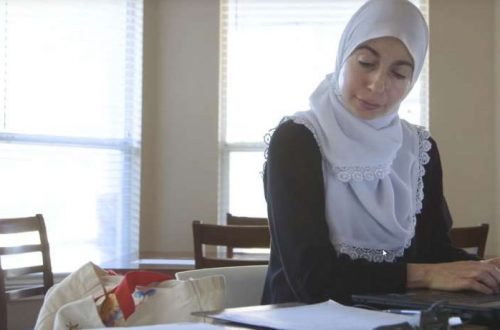Two of the many considerations to be taken into account when discussing free speech are the context of the speech and its likely impact. Not offering someone a platform is different from banning. If we complain about this or that person being invited to speak at the Oxford Union or being given an op-ed in the Guardian – that doesn’t necessarily mean we want to deny those people any chance to express themselves, just that we don’t want their views to be given a veneer of respectability.
However, whereas some will be particularly concerned at the invitation to Anjem Choudhary to speak at the Oxford Union, (because the invitation could be interpreted as an honour) others will be more worried by the impact of countless events at which extremist preachers have been invited to speak to Islamic societies (see this recent story from Student Rights) than they will by an open debate with (presumably) a more sceptical audience.
Any discussion of free speech is likely to include a weighing up of the harm caused by allowing the speech and the harm caused by banning it. Banning may often be deemed wrong on principle; it may also sometimes be tactically ill-judged, for example if it stirs up resentment or drives views underground where they cannot be monitored.
Incitement to violence is another tricky factor. Sometimes it’s clearcut. Sometimes – as with homophobic and misogynistic lyrics – it’s more indirect or uncertain. It’s hard to draw a line based simply on the consequences of certain kinds of speech. Antisemitic and anti-Muslim incidents rise predictably following certain events, and for some potential perpetrators even neutral news reports could act as triggers.
In the wake of the controversy over the Southampton conference on Israel and international law, I noticed another related cancellation. The city of Toulouse has banned an event associated with a left wing group which supports BDS.
The canceled event was a lecture by Farid Esack, a South African university lecturer and activist, titled “Apartheid, from South Africa to Israel.” He was scheduled to speak at a municipal event hall on March 31 at an event organized by the New Anticapitalist Party, a movement established in 2009.
“In light of the context, I can not permit a public gathering that risks encouraging discrimination of Jewish people and commercial products associated with the Jewish faith and the State of Israel,” Toulouse Mayor Jean-Luc Moudenc said in a statement on March 31.
The report in the JTA goes on to remind readers that Toulouse was where Mohammed Merah killed four Jews (three of them children) in 2012.
The event’s organisers, the New Anticapitalist Party, are far-left and anti-Zionist. However here a spokesman, Julien Salingue, does acknowledge both the antisemitism of Dieudonné, and the fact that hostility to Israel can be a vector for racism:
Does anti-Semitism exist in France? Obviously, and it’s up to us all to fight it implacably, whether it is from the “classic” extreme-Right, from the duo of Soral-Dieudonné, or from other hateful people trying to use the Palestinian question to brew up a stigma-fuelling discourse against the Jews, which is sometimes unfortunately acted on.
The BDS movement in South Africa is particularly toxic. Esack has at least condemned some of its worst excesses, albeit in a way which is itself objectionable:
“We unequivocally distance ourselves from the singing of this song and its sentiments. Also, to tarnish all Jews with the Zionist brush is racism, regardless of who does it. Racism is racism… and racism is abominable,” said Prof. Farid Esack — a Muslim scholar active in the BDS movement — in a statement issued by Desai.
I am not convinced the Toulouse event should have been cancelled, although given the particularly bad reputation of BDS South Africa I’m not so sure about similar decisions made to ban the speaker from campuses in France.
Finally – I do not myself want to ban Ben White from campuses, yet I can also understand why some people do. Here, as an interesting parallel to the cancelled events in Southampton and Toulouse, is his own account of tussles over the terms on which he might be allowed to address students at Liverpool University. (A while back his appearance at Birmingham University was marked by a very artificial ban on the use of the word ‘apartheid’ during an interesting debate with David Hirsh and Alan Johnson.) Some of the issues raised are paralleled in Maryam Namazie’s more recent experience at the University of Dublin. I think both speakers should have been allowed to speak freely – and be challenged freely.
Two further parallels, or rather contrasts, also spring to mind.
Bongani Masuku has a worse record than Esack, yet his status as an invited guest to a UCU meeting to discuss the sensitive topic of BDS was treated casually in this ruling.
When Benny Morris’s visit to Cambridge University’s Israel Society attracted protests from the Islamic and Pakistan societies – the talk was cancelled.


